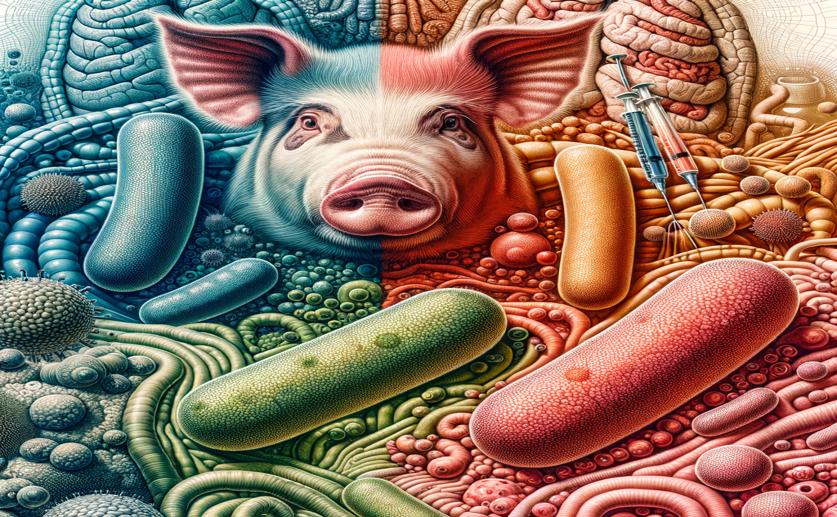
Exploring Four Pig-Related Bacteria Strains for Probiotic Use
Jim Crocker
6th March, 2024

Image Source: Natural Science News, 2024
Key Findings
- Study at Nanjing Agricultural University found certain pig bacteria may improve pig health
- Lactobacillus johnsonii L16 excels in breaking down carbs and surviving in tough gut conditions
- Some bacteria strains can fight off harmful pathogens, potentially protecting pigs from illness
References
Main Study
1) Genomics-based analysis of four porcine-derived lactic acid bacteria strains and their evaluation as potential probiotics.
Published 5th March, 2024
https://doi.org/10.1007/s00438-024-02101-0
Related Studies
2) Criteria to Qualify Microorganisms as "Probiotic" in Foods and Dietary Supplements.
3) Whole-Genome Sequencing, Phylogenetic and Genomic Analysis of Lactiplantibacillus pentosus L33, a Potential Probiotic Strain Isolated From Fermented Sausages.
4) Complete genome sequencing of Peyer's patches-derived Lactobacillus taiwanensis CLG01, a potential probiotic with antibacterial and immunomodulatory activity.



 28th February, 2024 | Greg Howard
28th February, 2024 | Greg Howard